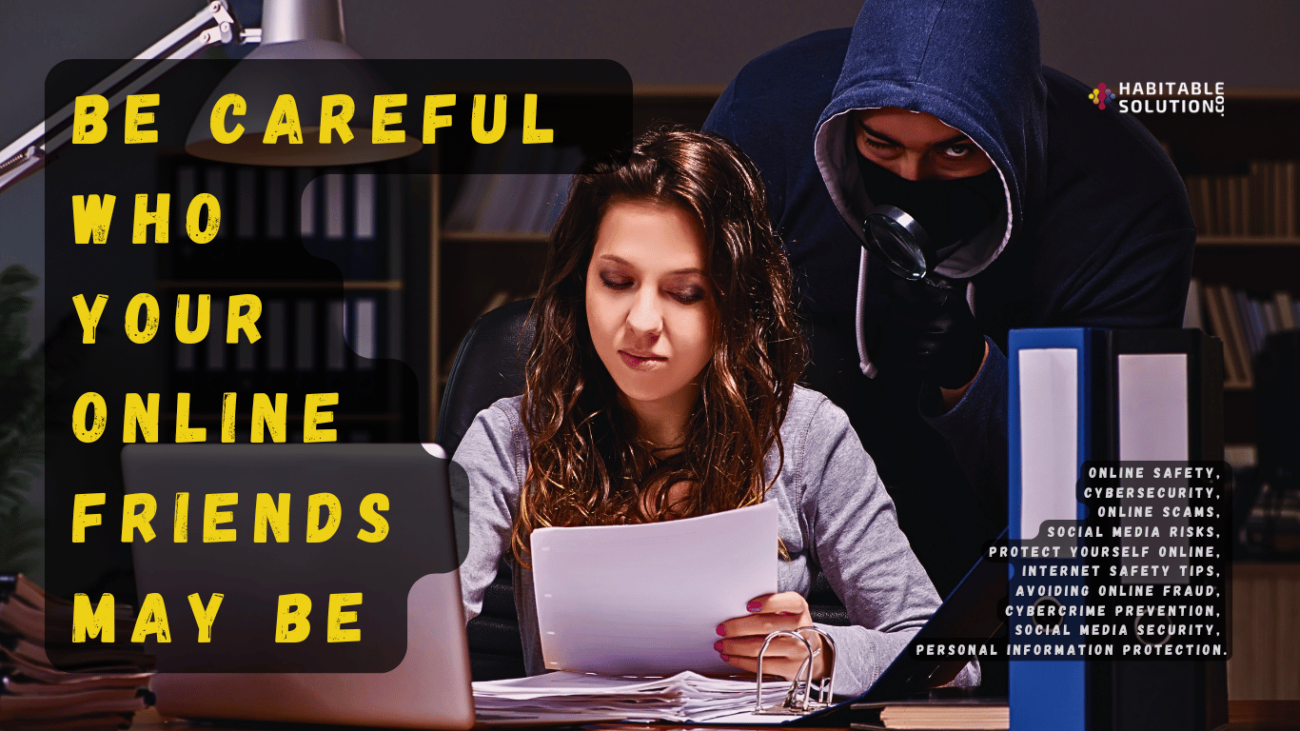
In today’s digital age, social media platforms like Facebook, Instagram, WhatsApp, and Snapchat have made it easier than ever to connect with people from all over the world. While these connections can be genuine and meaningful, they also come with risks, particularly when forming friendships with strangers. Cybercriminals often exploit the desire to make new friends online, setting traps to steal money or sensitive information. In some cases, they even engage in blackmail or launch cyber-attacks to siphon funds from victims’ bank accounts. To protect yourself from falling into such traps, it is essential to approach online friendships with the same caution you would in real life. Here are some strategies to help you stay safe:
Beware of Requests for Personal Information
Cybercriminals often create fake profiles to initiate friendships with unsuspecting individuals. They engage in regular conversations, gradually building trust. Eventually, they may start asking for personal information, such as details about your family, relatives, educational background, bank accounts, and investments. Once they have gathered enough information, they can use it to carry out cyber-attacks or other criminal activities. To protect yourself, never share personal information with people you meet online, no matter how friendly or trustworthy they may seem.
Avoid Sending Money to Online Friends
After establishing a friendship, online scammers may suddenly claim to be in financial trouble and ask for money. They often present their situation in a convincing way and may even promise to repay you by a specific date. However, once they receive the money, they typically disappear, shutting down their accounts and cutting off all communication. To avoid becoming a victim of such scams, refrain from sending money to anyone you meet online, regardless of the circumstances.
Be Wary of Promises of Expensive Gifts
Scammers may also attempt to lure you with promises of expensive gifts, trips, or other enticing offers. They might ask you to send money to cover the shipping costs or other fees associated with delivering the gift. However, once you send the money, the scammer vanishes, leaving you empty-handed. Always verify the identity and intentions of anyone offering gifts online before engaging in any financial transactions.
Think Twice Before Sharing Photos or Videos
It is crucial to exercise caution when sharing personal photos or videos with someone you’ve met online. Scammers can use these images to blackmail you or engage in other forms of exploitation. Protect your privacy by keeping your personal content private and only sharing it with people you know and trust.
Being cautious about who your online friends may be is essential for maintaining your safety and privacy. Here are some key steps to help you be more discerning:
1. Verify Their Identity
- Profile Details: Look for a complete profile with personal information and activities that match their claimed identity. Be wary of profiles with minimal information or generic pictures.
- Social Media Presence: Check if they have a consistent and credible presence across other platforms. A legitimate person often has a history of interactions and posts.
- Mutual Connections: See if you have any mutual friends or connections who can vouch for them.
2. Be Cautious About Personal Information
- Limit Sharing: Avoid sharing sensitive information like your home address, phone number, financial details, or personal identification numbers.
- Ask Questions: If they ask for personal information, question their reasons and how they plan to use it.
3. Observe Their Behavior
- Consistency: Genuine friends typically have consistent communication and behavior. Watch out for abrupt changes or inconsistencies in their stories.
- Red Flags: Be wary of anyone who pressures you for personal details, money, or favors. Scammers often create a sense of urgency or use emotional manipulation.
4. Engage in Safe Communication
- Use Trusted Platforms: Communicate through established and secure platforms with strong privacy settings.
- Avoid Private Conversations Early On: Initially, keep conversations in public or semi-public forums until you have established trust.
5. Look for Signs of Manipulation
- Too Good to Be True: Be cautious of individuals who shower you with excessive praise, promises, or unrealistic offers.
- Requests for Financial Help: If someone you’ve recently met online asks for money or financial assistance, treat it as a major red flag.
6. Trust Your Instincts
- Gut Feeling: If something feels off or too good to be true, trust your instincts and proceed with caution.
- Seek Advice: If you’re unsure about someone, consult with friends or family for a second opinion.
7. Monitor Privacy Settings
- Adjust Settings: Regularly review and update your privacy settings on social media to control who can view your information and posts.
- Review Friend List: Periodically check your online friends and remove any connections that no longer seem trustworthy.
8. Report Suspicious Activity
- Report and Block: If you encounter suspicious behavior or suspect that someone is a scammer, report them to the platform and block them to prevent further contact.
By following these steps, you can reduce the risk of falling victim to online scams or harmful interactions. Prioritizing your safety and maintaining healthy skepticism can help you navigate the digital world more securely.
Conclusion
Online friendships can be enriching, but they also come with risks. By being aware of the tactics used by cybercriminals and following the safety tips outlined above, you can protect yourself from falling into online friendship traps. Always remember to prioritize your safety and privacy, and approach online interactions with the same level of caution you would in face-to-face encounters.
Q. How can I save my online friendship?
– Talk to them in person, text them, or send them digital messages
Q. How to stay safe when chatting online?
– Don’t give away personal information.
– Check out their friends list.
– Do friends and photos seem to check out?
– Do they refuse to use a webcam?
– Google image search.
– Meeting up?
– Think logically and trust your instincts.
– Need legal advice?
How to stay safe online?
How do you stay friends online?
Can you trust online friends?
How do I find a bestie online?
When to cut off an online friend?
What are the 5 internet safety rules?
How can I have a safe online relationship?
How do I keep chatting online?




